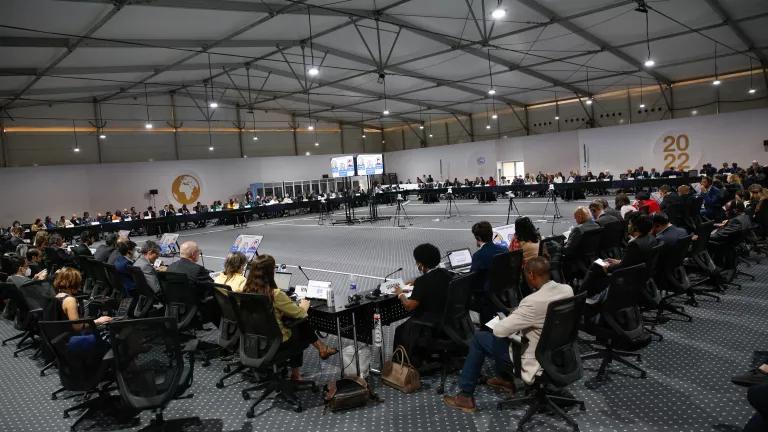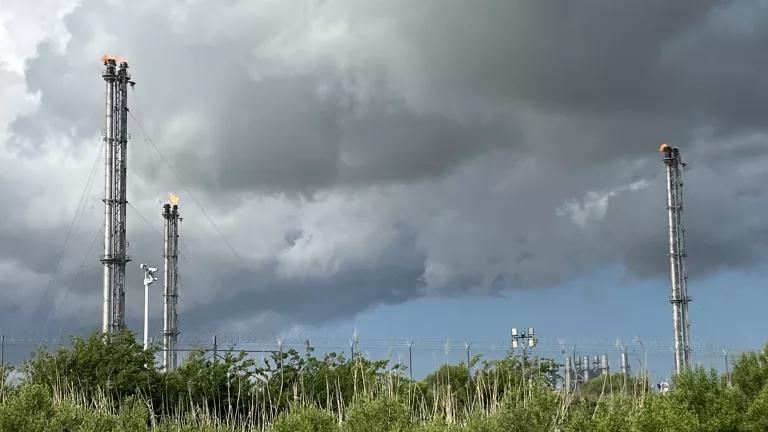Latin America Green News (9/24-28/2012): Who's winning the green growth race? Mexico and Costa Rica support green investments, while Chile flip flops on renewable energy goal
Chile
A new study by the University of Chile found that the environmental impact assessments for 100 large mining and energy projects were missing necessary information and lacked credibility. The study states that “without exception, the information presented…was very limited or non-existent, not complying with the minimum reliability requisites.” It also showed that consultants who provide environmental impact assessments have a large role in this. Ignacio Toro, Executive Director of the National Environmental Service, upheld the report’s findings: “if the investor does not want to recognize the impacts, for example, of a large thermoelectric plant on air, they will contract for a study and a model that in the end reflects that there are no significant impacts.” (La Segunda 9/22/2012)
Thirty-five members of the European Parliament, from different parties and countries, signed a letter criticizing HidroAysén, the hydroelectric proposal in Patagonia. The letter stated that the project “would seriously and irreversibly alter the delicate environmental, social and economic balances of the region which has chosen other priorities for its own development.” They called on Chile to instead develop its non-conventional renewable energy resources. (Radio Universidad de Chile 9/28/2012)
Renewable energy companies are speaking out against the government’s recent announcement that it will not pursue its own previously-stated goal of achieving 20 percent of national energy generation from renewable energy sources by 2020. The heads of renewable energy companies and the Chilean Renewable Energy Association say they feel “defrauded” by the government, and that this move sends a bad signal to the industry that will derail investments. The announcement came at the same time that the Renewable Energy Center released a report showing that renewable energy projects are growing: in June they contributed 4.86 percent to total generation. (Diario Financiero 9/26/2012)
Minera Invierno, affiliate of the controversial Minera Isla Riesco coal mine in Chile’s southernmost region of Magallanes, and its partners Copec and Ultramar, says the group will begin exporting coal from their mines to Asia in early 2013. Together, the companies have planned to invest more than $480 million in coal projects in the Magallanes Region. (Pulso, via Minería Chilena 9/28/2012)
Costa Rica
New research in Costa Rica’s Terraba-Sierpe wetland highlights the role these coastal ecosystems can play in the fight against climate change. Data gathered by CATIE researcher Miguel Cifuentes shows that 76% of the wetland’s carbon content is stored in the sediment under the surface of the ecosystem. Meanwhile the wetland’s trees represent only 20% of the carbon content. Cifuentes notes that while forests have a finite capacity to store carbon, wetlands can store carbon far longer because it accumulates in the sediment. (La Nación 9/25/2012)
A proposed Wildlife Conservation Law is up for consideration by Costa Rica’s legislature. The proposal is the first one presented under a popular initiative law. The proposed wildlife legislation would impose fines on people who hunt without authorization of the parks service, exceed hunting quotas, or engage in animal or plant trafficking. It would also fine those who keep endangered or rare wildlife as pets without authorization and would completely outlaw sports hunting. (El País 9/28/2012)
Costa Rica signed on to the Declaration on Green Growth of the Organisation for Economic Co-operation and Development (OECD). By doing so, the country will seek to develop policies that promote green, low-carbon investments and sustainable resource management. René Castro, Costa Rica’s Minister of Environment and Energy noted the decision to adhere to this declaration reflects the country’s commitment to become a low-carbon economy and continue to conserve biodiversity. (El Financiero 9/26/2012)
Mexico
CIBanco has started a loan program to finance the purchase and installation of photovoltaic panels in upper and middle class houses in Mexico City. The loan, called the CIPanel Solar, requires a 35 percent deposit of the total payment for purchase and installation. It is a five year loan with a fixed 15 percent annual interest rate. Mario Maciel, general director of CIBanco, states that it is a practical way to combat climate change because customers pay their loan back with the money they saved from converting from electric to solar energy. (Vanguardia, 9/26/2012)
The Secretary of Environment and Natural Resources (SEMARNAT) has declared a section of Cozumel as a protected area, covering a surface area of37, 829 hectares. Juan Rafael Elvira Quesada, director of SEMARNAT, promised that the federal government will work to conserve this area and stresses the importance of protecting areas like this one. Luis Fueyo Mac Donald of the National Commission of Protected Natural Areas called this declaration an important advance in the preservation of species because the area is home to 533 different species including both plants and animals. (Terra.com 9/27/2012)
A study conducted by ABC Laboratories, Chemical Investigations and Analysis S.A, and the National Polytechnic Institute on the death of sea turtles on the Oaxaca and Salina Cruz beaches revealed high levels of hydrocarbons in the tissues and the livers of the turtles. Due to these results, the Federal Attorney for Environmental Protection (Profepa) will be sentencing Petróleos Mexicanos (Pemex) for this tragedy because of its lack of immediate response to the sinking of the company’s buoy in August. Profepa demands remediation measures of Pemex to compensate for the damages caused to the marine ecosystem. (Semarnat.gob 9/20/2012)
Due to the demand for natural gas in Mexico, Petróleos Mexicanos (Pemex) has proposed the building of a new pipeline, Los Ramones-Reynosa, at the cost of $3 million. Juan José Suárez Coppel, director of Pemex claims that the company does not have the resources to finance this project, but is looking at alternative options to get the project done, such as partnering with another company. Suárex Coppel apologizes for the problems that the company has had in the past with their oil projects but promises a creation of a new system to monitor and better equip this new project against possible problems. Carlos Murrieta, Director of Operations of Pemex, states that there have only been 15 critical alerts from their system and only nine of them were due to product failure. Due to the 20 year delay of the Mexican naval industry, the company is also looking at different shipyards to
Note: The linked articles and excerpts in this post are provided for informational purposes only and do not necessarily reflect the views or positions of the Natural Resources Defense Council.




